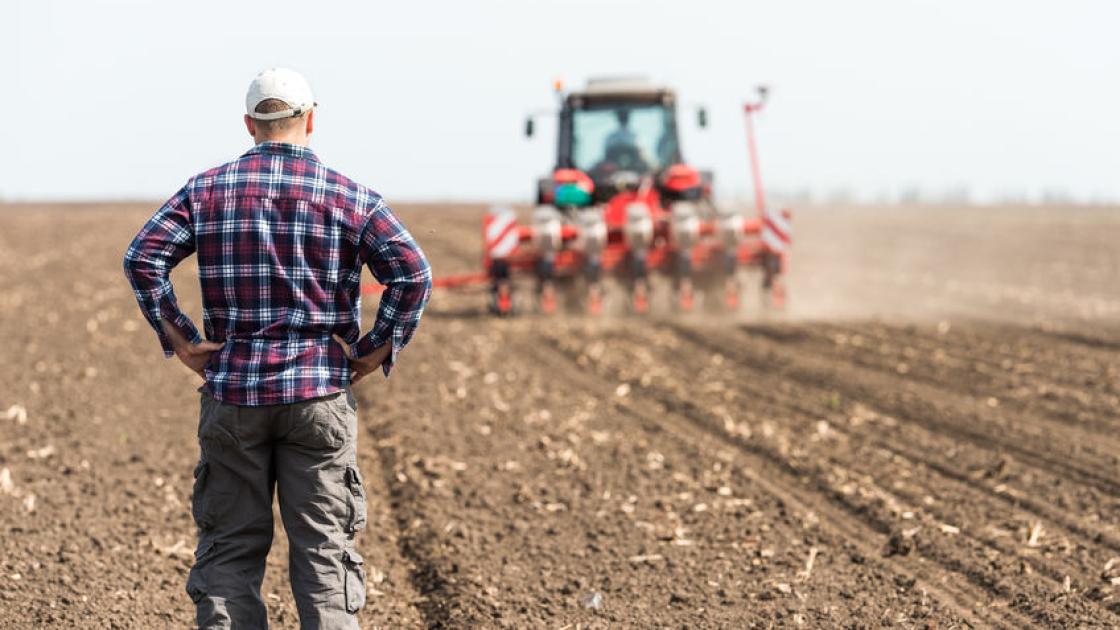
Farmers, here's what mindfulness can do for your health
Do you ever feel like you're moving through your days on autopilot? Are you always thinking ahead to all the chores that need to be done around the farm, instead of focusing on what you're doing at the moment? Do you frequently react strongly to other people or situations instead of thoughtfully responding?
These common experiences indicate a lack of awareness, or mindfulness, in your day-to-day life. What does science say about mindfulness that you, as a farmer, can you use to feel healthier and more joyful?
What is mindfulness?
Researchers and doctors define mindfulness as the state of being fully aware and accepting of the present moment, as well as aware of your own thoughts, feelings, sensations and surrounding environment. To be mindful means you notice these thoughts, feelings and sensations without judging them—you accept what you notice without necessarily labeling them "good" or "bad."
If this sounds difficult to do, understand that mindfulness is something you practice, and not necessarily a permanent way of being. In fact, one of the first components of mindfulness is learning to notice when you are not being present, when you are being emotionally reactive or when you are worrying about the past or future. By noticing your lack of awareness, you are, in a sense, becoming more aware in that exact moment.
Mindfulness helps us bring our awareness to what is happening in the present. Often our distress comes not from what is happening now, but from worrying about the future and replaying negative events form the past. We know that we don’t have the power to change the past or to control the future, but it is easy to get pulled into replaying those thoughts in our minds. Planning is beneficial. Worrying is not. Mindfulness helps us come back to the present so that we can be more effective.
Cultivating more moments of mindfulness can be beneficial for your physical and mental health. While this area of research is growing, we do know of several mindfulness benefits, including:
- Reduced stress
- Improved sense of well-being
- Reduced emotional reactivity
- Improved ability to regulate behaviors
- Strengthened immune system
- Increased density of brain matter associated with learning, memory, decision-making, emotion regulation and empathy
- Improved creativity
- Improved relationships, compassion and altruism
5 simple ways to bring more mindfulness into the farming life
Any farmer or rancher can practice mindfulness and learn how to experience it more often in their daily lives. Here are five simple ways to get started:
- Begin with mindful eating. Sit down while you eat, and remove all distractions such as phones, televisions and profit/loss spreadsheets. Eat slowly. With each bite, pay attention to the tastes, textures and sensations you experience. Mindful eating is a great way to practice mindfulness. It can help you really enjoy your food and may even help you lose weight.
- Explore meditation. If you're new to meditating, consider downloading an app or listening to a guided meditation on YouTube. There are many types of meditation practices available, including meditations performed while sitting, lying down or walking. It's great to try different types of meditation until you find a practice well-suited to your preferences.
- Become aware of your breath. A great time to do this is when you first get into your truck or tractor, before driving off. You can also bring awareness to your breath whenever you feel strong negative or positive emotions. Observe where you feel your breath the most: at your nostrils, in your chest, in your belly or somewhere else. Don't judge what is going on around or inside you. Simply notice how your breath feels for brief moments throughout the day.
- While washing your hands, give your full attention to the sensations: the temperature of the water, the sound of the faucet, the smell of the soap and so on. Be curious about the sensations you experience during this or any other everyday task, whether that's washing equipment, tending to animals or checking inventory.
- Work with a health care provider, such as a psychologist or other mental health counselor, who can introduce you to more mindfulness-based exercises.
There's no need to become a mindfulness master in order to enjoy the various health benefits this practice offers. Even a few "mini-moments" of mindfulness throughout the day can make a positive difference.
Is mindfulness a part of your daily life?
At SIU Medicine, our research and clinical teams are on the forefront of health care innovations across a broad field of study, including mind body interventions and mindfulness practices. If it's time to talk to someone about your mental health, contact the Farm Family Resource Initiative at SIU Medicine today at 217-545-8000.




